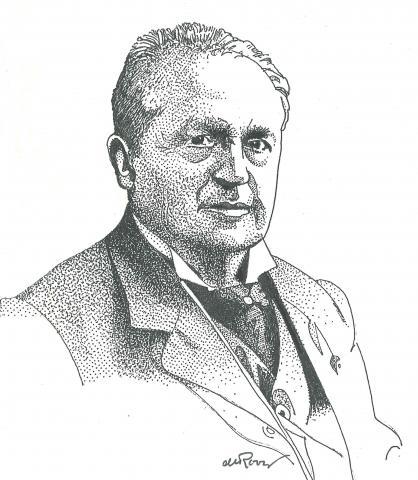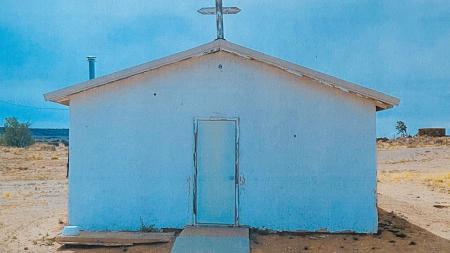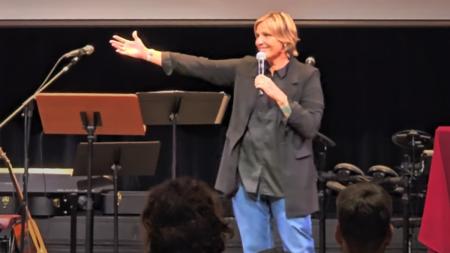Kuyper Conference to Address Public Theology of Hope for Africa

The cries of Christians across Africa who find themselves confronted by multiple forms of violence must be heard and form the basis of a true public theology of hope, according to Emmanuel Katongole, a Catholic priest from Uganda who will be one of the plenary speakers at the upcoming 21st annual Kuyper Conference at Calvin College and Seminary in Grand Rapids, Mich.
Katongole, author of a book on the Rwandan genocide and a faculty member of the Kroc Institute for International Peace Studies at the University of Notre Dame in South Bend, Ind., says that in order to give hope in the midst of violence, poverty, and unrest, African theology must do three things.
It must become prophetic, it must realize and teach the significance of a suffering God, and it must be a form of political theology that has a system of belief and ideas that seeks to touch, influence, and transform people across all of society, says Katongole.
Planned for April 30 through May 1, the Kuyper Conference will focus on “The Future of African Public Theology,”featuring a conversation between African public theologians from a variety of perspectives and Reformed Christian scholars from several continents about the state of African public theology, the need for it, and the promise it holds for informing Christian thinking and practice on the African continent and beyond.
“The center of the Christian church worldwide has shifted away from Europe and North America to places like Asia and Africa, and the implications of this change are slowly being recognized around the globe,” said Jordan Ballor, a senior research fellow at the Acton Institute and coordinator of the conference.
“The plenary speakers at this conference will help us understand how Christians, whether in America, Canada, Europe, or Africa, ought to respond to these realities, and how the global church can learn from and help one another.”
Among those speaking will be Daniel Bourdanné, a veteran of the International Federation of Evangelical Students who has long been an advocate for applying Kuyperian perspectives in an African context.
Other speakers and presenters include Nicholas Wolterstorff, a philosophical theologian, author, and ethicist; and James Bratt, a historian who has written the biography Abraham Kuyper: Modern Calvinist, Christian Democrat.
Bratt will interview Wolterstorff on and discuss ways in which strains of Kuyper’s thought were used to both support and criticize apartheid in South Africa.
Helping to wrap up the conference will be Anne Zaki, an assistant professor in the department of practical theology at the Evangelical Theological Seminary in Cairo, Egypt. Zaki will speak on “Living Out Loud: Public Theology in an Islamic Context.”
“The focus of the conference is public theology, which I understand to mean theology of and for the church as it is present throughout society and the world,” said Ballor.
Theologians and students with an academic interest in the field of public theology are expected to attend. But there is another audience as well.
“We also hope that there will be interest among pastors, missionaries, and other ministry workers . . . since public theology has such clearly practical relevance,” said Ballor.
The Kuyper Conference began in 1998 at Princeton Theological Seminary to acknowledge the stream of Calvinist thought represented by Abraham Kuyper, Dutch theologian and statesman (1837-1920), and to explore the tradition he helped to form, commonly known as neocalvinism.
The Kuyperian movement, originally primarily associated with Dutch Calvinists in the Netherlands and in North America, is now growing globally, especially with the publication of Kuyper’s work in English by the Abraham Kuyper Translation Society.
“The church throughout Africa has its own long history, of course, and there is much to learn about this history and its impact today,” said Ballor.
“But there is also something that the Kuyperian world-and-life view has to offer churches that are looking for ways to be faithful disciples throughout all of life and in all of God's world.”
The Acton Institute, the Abraham Kuyper Translation Society, and other groups are sponsoring the conference.
Besides plenary sessions featuring prominent African theologians, the conference will offer roundtable discussions on various topics related to Kuyperian thought.
In addition, group discussion sessions for students are planned, with participation determined in advance. Click here for more information about the conference.


